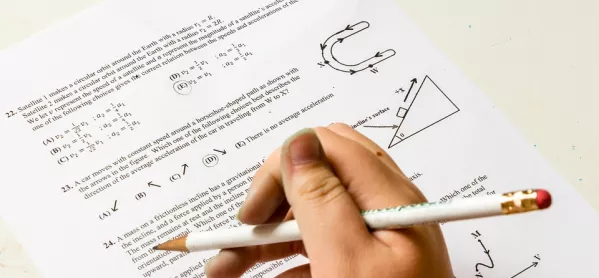Boys are almost twice as likely as girls to call themselves a “natural” at maths, a poll reveals.
While nearly one in five (19 per cent) of boys aged 11-16 make the claim, the same is true of only one in 10 girls.
Two in 10 boys aged 11-16 say they love the subject and find it easy - a sentiment expressed by just one in 10 girls.
Two thirds (67 per cent) of pupils surveyed believed their maths ability was good or very good - with just 7 per cent saying it was poor or very poor.
But boys were far more likely (33 per cent) than girls (19 per cent) to say they were very good at maths.
And boys were far less likely (14 per cent) to say they try but “just can’t do” maths, compared to 22 per cent of girls.
The poll of 2,000 respondents aged over 16 and 1,002 aged between 11 and 16, was commissioned by the Maths Mission programme, the charity Nesta, and the company Tata.
It comes on the day that GCSE students sit their maths exams.
Jed Cinnamon, who leads the Maths Mission programme, said: “The survey reveals a notable disparity in how confident boys and girls are in their maths ability.
“The issue of confidence in subjects like science and maths is one that needs to be addressed through further research and innovation - but we know that challenging stereotypes is a big part of the battle to open up all the exciting opportunities that come with studying STEM subjects.
“Within the Maths Mission partnership we are keen to explore how our pilot programmes can promote inclusivity and diversity in the subject.”
The programme is also looking at ways to tackle the “mismatch” between attitudes to maths and performance in the subject.
Over half (54 per cent) of pupils in the poll recognised that maths is applied in most jobs, and four in 10 felt it was just as important within creative industries as in sectors such as science and technology.
A quarter of those polled (28 per cent) said they were interested in the subject, with more boys (34 per cent) than girls (24 per cent) expressing this view.
Few (9 per cent) said they “dreaded” maths lessons, girls were twice as likely as boys to express this view
However, UK teenagers are ranked just 27th in the OECD’s most recent global tests when it comes to their maths skills - down from 26th place in 2012.
Mr Cinnamon said: “Today’s secondary school students say they enjoy and even love maths - in stark comparison to the fear/dread that 18 per cent of adults said they had for the subject at school. It’s great to see an indication of positive attitudes to the subject, but we need to explore how this links to attainment and choices to study maths beyond the age of 16.
“The poll indicates a mismatch between passion, performance and the pipeline of maths graduates - and it’s high time to explore new ways to tackle this critical issue. Nesta and Tata’s Maths Mission is testing if the answer could lie outside the formal curriculum, by linking maths to practical problems, parental conversations and even peer support.”




